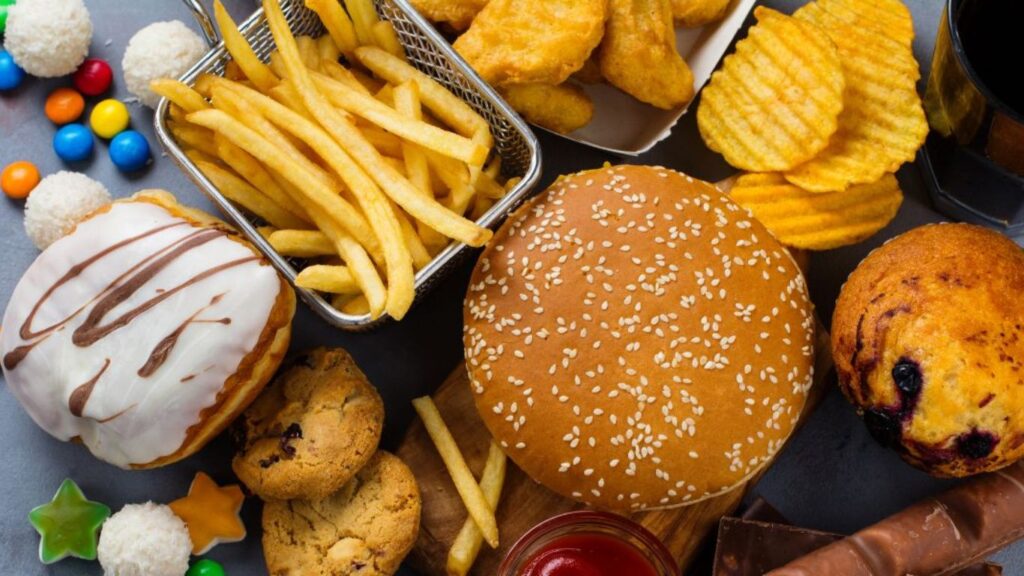According to the Anxiety and Depression Association of America (ADAA), anxiety disorders affect over 40 million adults in the United States alone, making it one of the most prevalent mental health conditions today. Imagine waking up each day with a knot in your stomach, feeling constantly on edge, and unable to shake off irrational fears. This is the reality for those living with anxiety disorders. The link between food choices and anxiety disorders is profound, influencing neurotransmitter balance, inflammation levels, and overall brain function. Diets high in sugar, caffeine, and processed foods can exacerbate anxiety symptoms, while nutrient-dense, balanced diets rich in whole foods, omega-3 fatty acids, and antioxidants may alleviate them. Understanding this interconnection empowers individuals to make informed dietary decisions that support mental health, highlighting the significant role nutrition plays in managing anxiety disorders effectively. This blog explores how certain foods can contribute to or worsen anxiety disorders, shedding light on a crucial yet often overlooked aspect of mental health management.
5 Foods That Can Cause Anxiety Disorders
1. Sugar and Refined Carbohydrates

Sugar and refined carbohydrates cause rapid spikes in blood sugar levels, followed by sharp crashes. This cycle can disrupt neurotransmitters like serotonin and dopamine, affecting mood regulation and contributing to mood swings. Additionally, these foods lack essential nutrients that support stable brain function, further impacting emotional stability. Studies, such as those published in the American Journal of Clinical Nutrition, have shown a correlation between high sugar intake and increased anxiety symptoms. These studies suggest that excessive sugar consumption can heighten the body’s stress response and exacerbate feelings of anxiety and tension.
Specific foods high in sugar and refined carbs include candies, sodas, pastries, white bread, and sugary cereals. Consuming these items can lead to short-term energy boosts followed by crashes, leaving individuals feeling irritable, anxious, and emotionally unstable. These effects highlight the detrimental impact of high sugar intake on mental health and well-being.
2. Caffeine

Caffeine is a central nervous system stimulant that blocks adenosine receptors, which promotes alertness and reduces feelings of fatigue. By stimulating the release of adrenaline and dopamine, caffeine temporarily enhances mood and concentration. However, caffeine can exacerbate anxiety symptoms in sensitive individuals. Its ability to increase heart rate and induce jitteriness can mimic physiological responses to stress, potentially triggering or intensifying anxiety. Moreover, caffeine can disrupt sleep patterns, which are crucial for maintaining mental health and managing anxiety.
Common sources of caffeine include coffee, energy drinks, teas (especially black and green tea), and chocolate. Many over-the-counter medications and dietary supplements also contain caffeine, contributing to daily intake levels. Understanding these sources is essential for individuals looking to manage their caffeine consumption and mitigate its impact on anxiety levels.
3. Alcohol

Alcohol acts as a depressant on the central nervous system, slowing down brain function and altering neurotransmitter activity. Initially, it may induce feelings of relaxation or euphoria. However, alcohol can lead to rebound anxiety due to its impact on neurotransmitters like serotonin and gamma-aminobutyric acid (GABA). As the effects wear off, individuals may experience increased feelings of anxiety, restlessness, and irritability. For those with existing anxiety disorders, alcohol can exacerbate symptoms and interfere with treatment effectiveness.
Moderate alcohol consumption is often defined as one drink per day for women and up to two drinks per day for men. Excessive alcohol intake, on the other hand, disrupts brain chemistry, exacerbates anxiety, and can lead to dependence and withdrawal symptoms. Understanding the difference between moderation and excessive consumption is crucial for managing anxiety and promoting overall mental well-being.
4. Processed Foods and Trans Fats

Processed foods often contain high levels of trans fats and refined sugars, contributing to inflammation and oxidative stress in the body. Trans fats, in particular, promote inflammation by increasing cytokine production and compromising cellular function. Research indicates a strong correlation between inflammation and mental health disorders, including anxiety. Chronic inflammation can disrupt neurotransmitter function and neural pathways involved in mood regulation, potentially exacerbating anxiety symptoms.
Common examples of processed foods high in trans fats include fast food items like burgers and fries, packaged snacks such as chips and cookies, and fried foods like chicken nuggets. Despite efforts to reduce trans fats in some regions, these harmful fats can still be found in various processed and convenience foods, contributing to both physical and mental health concerns, including anxiety.
5. High Glycemic Index (GI) Foods

High glycemic index (GI) foods are carbohydrates that are rapidly digested and absorbed into the bloodstream, causing a quick spike in blood sugar levels. These foods typically lack fiber and nutrients that slow down digestion. The rapid rise and subsequent fall in blood sugar levels after consuming high GI foods can lead to mood swings, irritability, and increased feelings of anxiety. This fluctuation affects neurotransmitters like serotonin and can disrupt the body’s ability to maintain stable energy levels and mood.
Examples of high GI foods include white bread, white rice, sugary cereals, and baked goods made with refined flour. These foods are commonly associated with anxiety disorders due to their potential to exacerbate symptoms by destabilizing blood sugar levels and contributing to metabolic dysregulation. Managing intake of high GI foods is important for stabilizing mood and supporting overall mental well-being.
Conclusion
While anxiety disorders are influenced by a complex interplay of factors including genetics and stress, dietary choices play a significant role in anxiety symptoms. Foods high in sugar and refined carbs, caffeine, alcohol, processed foods with trans fats, and high glycemic index foods can all contribute to heightened anxiety levels. Understanding these connections empowers individuals to make informed choices that support mental health. By prioritizing a balanced diet rich in whole foods and minimizing intake of anxiety-inducing substances, individuals can better manage their anxiety and improve overall well-being. Remember, small changes in diet can lead to significant improvements in mental health outcomes.
Also read: 5 Foods That Destroys Gut Health
